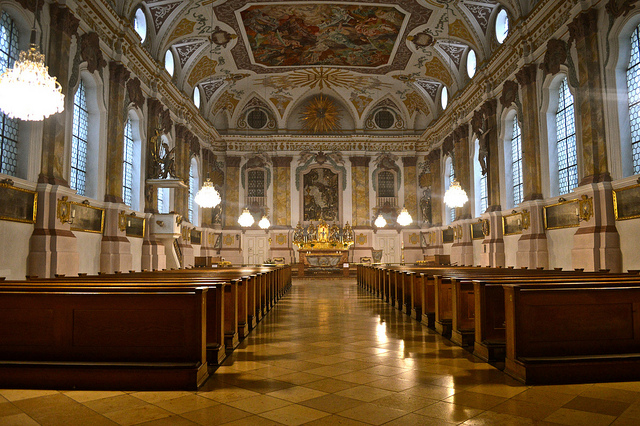Following decades of reports, convictions, cover-ups and a 2013 personal promise of “decisive action,” Pope Francis has finally decided to address widespread sexual abuse perpetrated by members of the Catholic Church. More than 100 bishops met in Rome for the largest summit ever held by the Vatican. There, Francis opened with 21 “reflection points” to provide a “roadmap” for discussion. When the meetings ended two days later, however, these “aids to reflection” remained the only tangible result of the conference, despite not offering any substantive solutions.
“I’ll tell you what the roadmap in here is,” said Peter Isley, a spokesperson for Ending Clergy Abuse. “It’s a circle.”
Isley shares his frustration with many victims and reform advocates who have long been calling for a “zero tolerance” policy to deal with sexual assault cases. Far from a blanket condemnation of abuse, the Church has instead suggested the “establishment of provisions” that acknowledge “different degrees of judgment of canonical processes.” Rather than create any concrete standards regarding punishment, the guidelines simply emphasize the need to observe the “traditional principle of proportionality.”
And the ultimate question of whether clergymen found guilty of sexual abuse should be dismissed from the public ministry? That has been marked “to decide.”
This inability to provide real steps toward reform illustrates the larger failure of the Catholic Church to properly address centuries of sexual violence, a history that at every point has been tolerated and enabled by the Vatican. Despite hundreds of scandals, including recent reports in Australia of 4,444 abuse cases since 1980, the Church higher-ups seem to have learned shockingly little and continue to facilitate the internal, secret processes that handle allegations.
The solutions proposed at the summit, even if enacted, will do nothing to change this reality. For instance, Francis recommended the establishment of “criteria for the direct involvement of the Bishop or of the Religious Superior,” reaffirming the need to inform “higher ecclesiastical authorities.” This completely ignores the fact that, when these “authorities” received allegations of assault in the past, they simply buried them. Just days before the summit began, new reports confirmed the Vatican has known of Argentinian Bishop Gustavo Zanchetta’s “inappropriate behavior” since 2015, despite the Church’s public denials. Still, officials allowed him to remain in his position until 2017, after which he voluntarily resigned and was granted a top position at the Vatican by Pope Francis.
This most recent cover-up follows last year’s staggering report in Pennsylvania, which detailed over 1,000 cases of clergymen sexually abusing minors, and stated that bishops “weren’t just aware of what was going on; they were immersed in it. And they went to great lengths to keep it secret.” The suggestions also disregard situations in which the members accused are high-ranking official themselves, despite having been drafted just days after the Church dismissed American Cardinal Theodore McCarrick for sexually abusing a minor.
Francis concluded the summit not by announcing official changes in policy, but by placing the blame on “addiction to pornography” and global “sexual tourism” for the increase in the Church’s sexual abuse scandals. He then added “the brutality of this worldwide phenomenon is all the more grave and scandalous in the Church, for it is utterly incompatible with her moral authority and ethical credibility.”
Of course, whether the Church still holds any form of moral authority in today’s modern world is debatable. I personally find it rather difficult to consider an institution which routinely suppresses investigations of child abuse and sexual violence a beacon of ‘ethical credibility.’ And while the Pope may consider generic rhetoric about the “the mystery of evil” to be progress, neither empty promises nor large public relations stunts will be enough to completely end decades long practices of concealment, abetment and complicity.
Sarah Almstrom is a Collegian columnist and can be reached at [email protected].



















